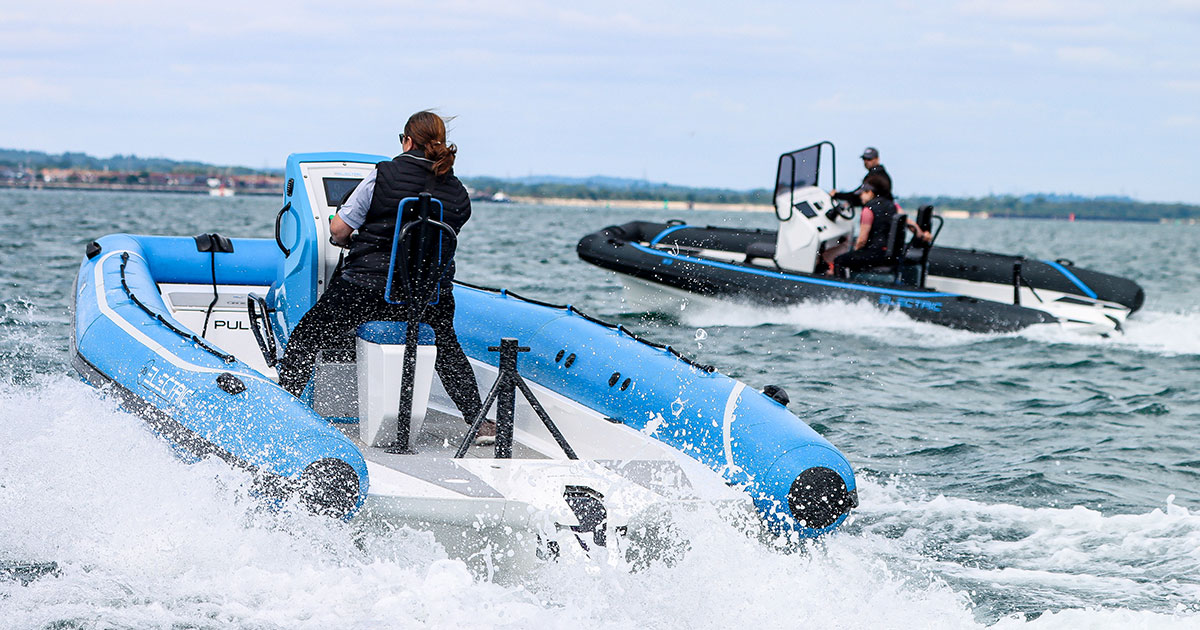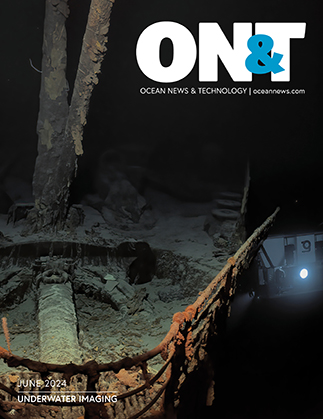V2G’s bi-directional charging technology lets electric vessel batteries both receive and supply energy, cutting carbon emissions, slashing e-vessel costs, boosting grid flexibility, and speeding up e-vessel adoption.
This transatlantic partnership will deploy bi-directional chargers and electric vessels in Plymouth, UK, and Halifax, Canada. These real-world installations will feature V2G capabilities in both software and hardware, onshore and aboard the vessels. The dual locations, with their contrasting environmental and operational conditions, will demonstrate the bi-directional energy flow to and from the vessel batteries, highlighting their capacity to perform key energy services and enhance energy security.
The consortium is represented by marine charge point operator Aqua superPower leading the UK partners, with vessel manufacturer RS Electric Boats, and drive solutions provider RAD Propulsion. They are supported by the University of Plymouth with expertise in marine electrification and battery chemistry. The Canadian partners are led by marine V2G software provider BlueGrid, with marine technology and marine market experts COVE, Lennox Island First Nation for skills training, and Dalhousie University providing knowledge of battery energy systems.
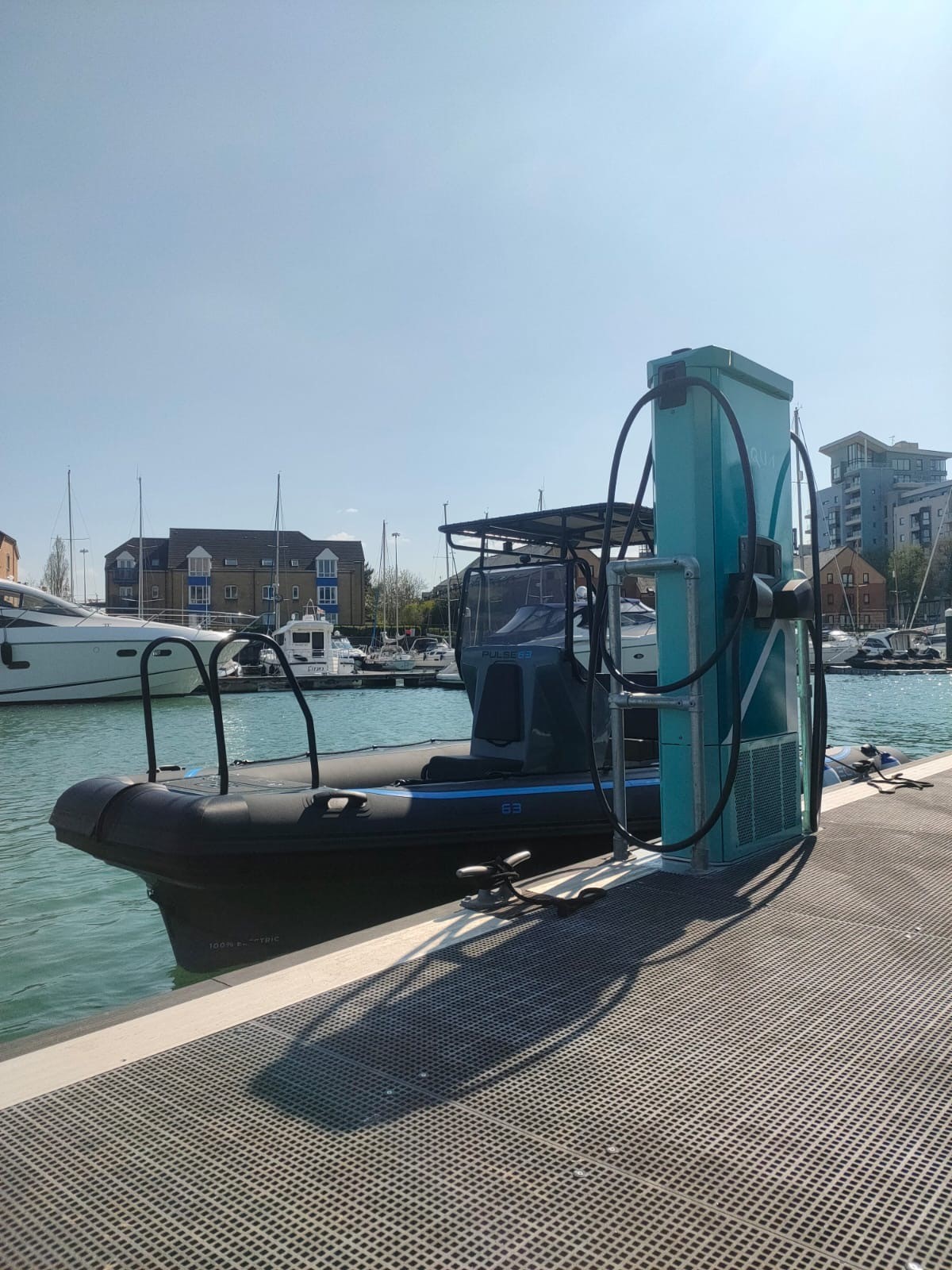
Aqua 75—Ocean Village Marina—Southampton (Image credit: Aqua superPower)
The transatlantic consortium will co-develop a V2G ecosystem, supporting V2G standards integration, battery R&D, and energy market alignment. Clear market paths in the UK and Canada will foster commercial partnerships, opening new markets and boosting both economies. Universities and commercial partners will gain from ongoing R&D collaborations.
Adam Marshall, Chief Technology Officer at Aqua superPower, stated, “Winning our second Innovate UK grant for vessel-to-grid technology highlights our leadership in marine electrification. We’re thrilled to lead the UK consortium and collaborate with our Canadian partners on this groundbreaking transatlantic project, showcasing the potential of bi-directional boat charging in different energy markets and environments.”
“International collaboration and innovation are cornerstones of this CanUK project. We proud to lead the Canadian team and work with our industry-leading UK partners for breakthrough vessel-to-grid deployments on both sides of the Atlantic. Together we will accelerate adoption of electric boats and emissions reductions, creating market opportunity in the process,” said Andrew Boswell, CEO at BlueGrid.
The CanUK vessel-to-grid project will adapt bi-directional tech from the automotive sector for marine use. Lab testing of equipment and batteries will deepen understanding of marine battery performance under various conditions. V2G standards will be integrated into RS Electric Boat’s 63kWh workboats, with R&D focused on battery and drive solutions.
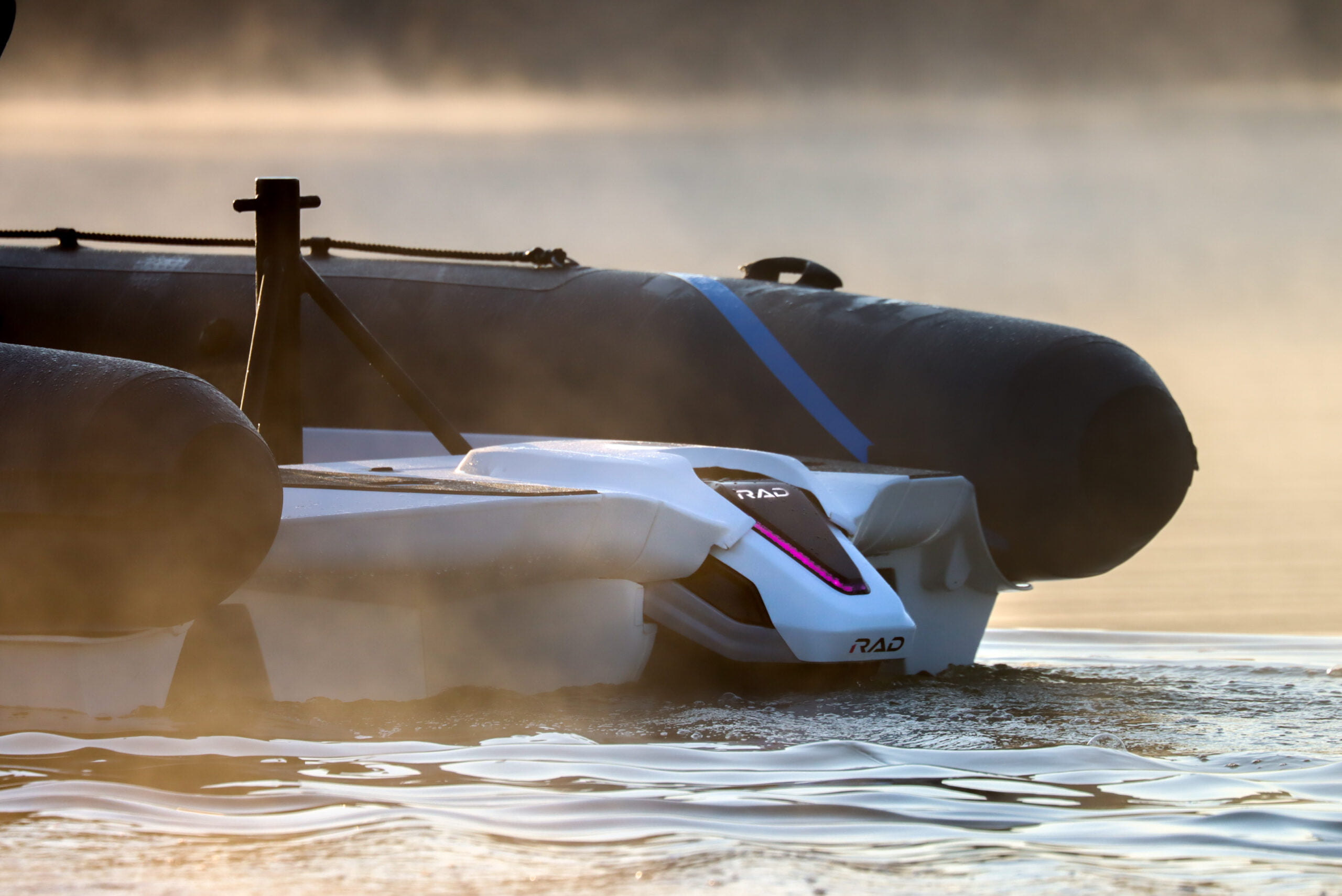
RAD Propulsion System – Pulse 63 (Image credit: RAD Propulsion)
A management platform will link all components, and testing will confirm interoperability. Without specific marine V2G regulations, best practices will be collaboratively developed with key regulators.
The project will prove the value of marine V2G and develop clear customer product and service offers across the consortium. These solutions will be tested with key stakeholders and end-users for whom the new solution will result in carbon reductions, vessel operating cost savings and more desirable vessel solutions.
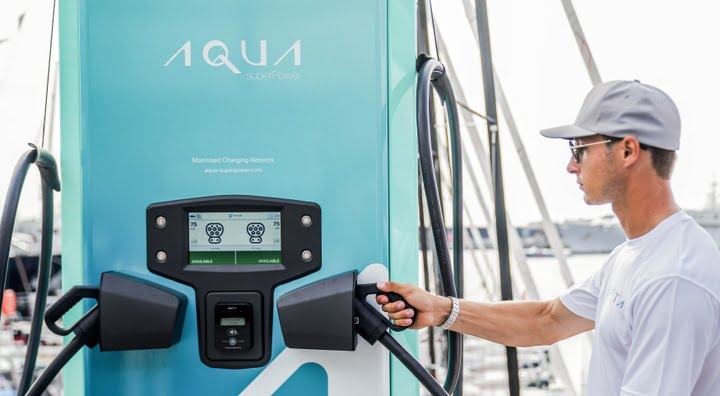
Aqua 75 DC marine fast charger with AquaLink technology. (Image credit: Aqua superPower)
V2G’s technology innovation will assist with the adoption of communication protocols to ensure interoperability between vessels, chargers, grids, and software management systems.
Innovate UK, part of UK Research and Innovation, is working with Canada’s Ocean Supercluster to invest a combined total up to £4 million in innovation projects that can involve a collaboration of industry and academia. The funding supports projects to deliver innovative outcomes in ocean technology.
The CanUK vessel-to-grid project is funded through this R&D program with the aim of stimulating the development and implementation of innovative technologies in ocean technology, and to build technical capabilities required for the development and economically sustainable production of the next-generation of products and services.
The bilateral R&D collaborations between the UK and Canada will position both countries to respond effectively to advancements in ocean technology. By fostering these cross-border partnerships, the CanUK vessel-to-grid project is set to pave the way for significant progress in marine energy solutions.
